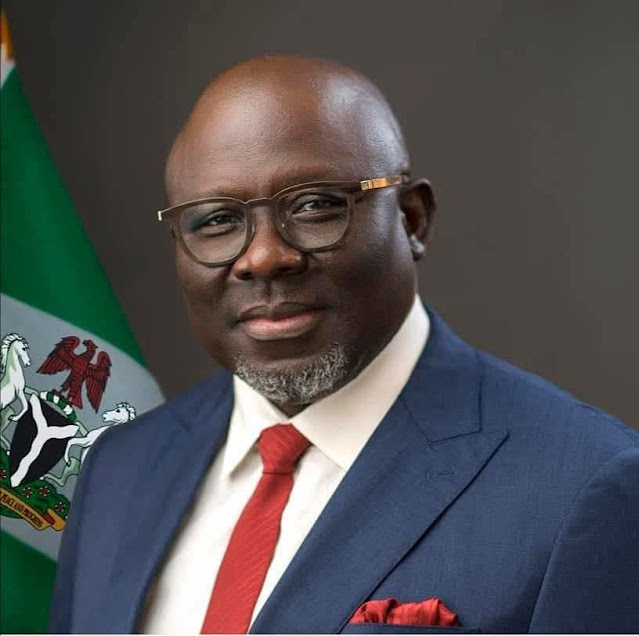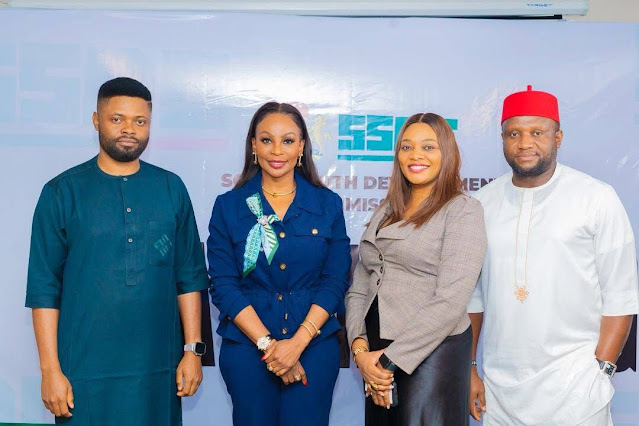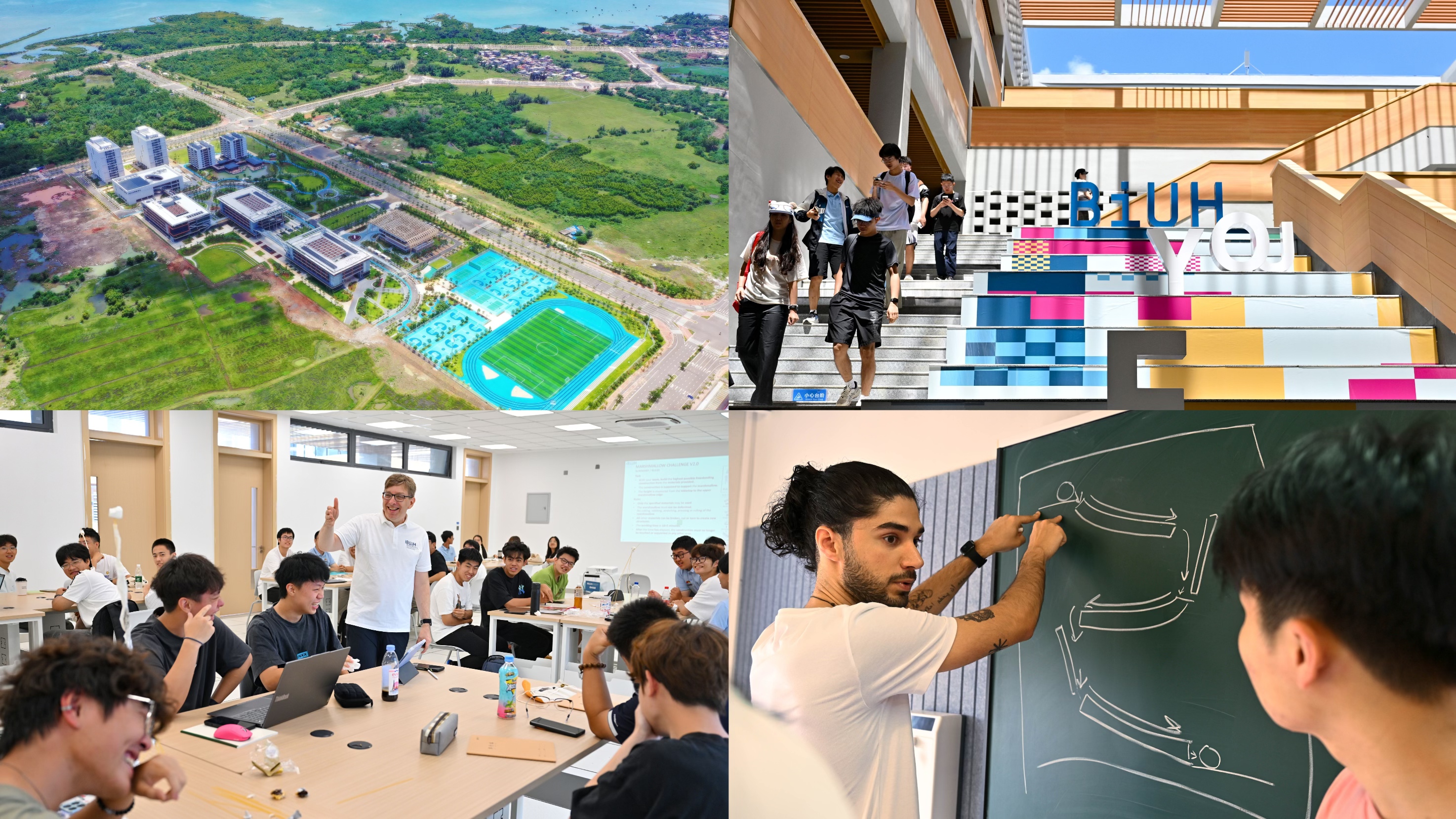In a heartfelt message to the Muslim community, Delta State Governor, Rt. Hon. Sheriff Oborevwori, has extended warm congratulations to Muslims in Delta State and across Nigeria on the occasion of the 2025 Eid-ul-Mawlid celebration. This significant Islamic festival, which commemorates the birth of the Holy Prophet Muhammad (Peace Be Upon Him), is a time of reflection, gratitude, and renewed commitment to the values exemplified by the Prophet. The governor’s message, delivered through his Chief Press Secretary, Sir Festus Ahon, emphasizes the importance of embracing the teachings of the Prophet—peace, love, tolerance, humility, and selfless service—as a pathway to fostering unity and progress in Nigeria. This article explores the governor’s message, the significance of Eid-ul-Mawlid, the role of the Muslim community in Delta State, and the broader implications of the celebration for Nigeria’s social and cultural landscape.
The Significance of Eid-ul-Mawlid
Eid-ul-Mawlid, also known as Mawlid al-Nabi, is one of the most revered celebrations in the Islamic calendar. Observed on the 12th day of Rabi’ al-Awwal, the third month of the Islamic lunar calendar, it marks the birth of the Prophet Muhammad, who is regarded as the final messenger of Allah and a model of exemplary character for Muslims worldwide. The festival is a time for Muslims to reflect on the Prophet’s life, teachings, and legacy, which emphasize compassion, justice, humility, and devotion to God.
In Nigeria, a country with a significant Muslim population, Eid-ul-Mawlid is celebrated with various activities, including special prayers, recitations of the Qur’an, lectures on the Prophet’s life, and communal gatherings. These events provide an opportunity for Muslims to strengthen their faith, foster community bonds, and recommit to living according to Islamic principles. In many communities, the celebration is also marked by acts of charity, sharing meals with neighbors, and promoting goodwill among people of all faiths.
For Delta State, a region known for its cultural and religious diversity, Eid-ul-Mawlid holds special significance. The state is home to a vibrant Muslim community that coexists harmoniously with Christians and adherents of traditional religions. The governor’s message underscores the importance of this occasion in reinforcing the values that unite Delta’s diverse population and contribute to the state’s peace and development.
Governor Oborevwori’s Message: A Call for Reflection and Unity
In his Eid-ul-Mawlid message, Governor Oborevwori called on Muslims to use the occasion to reflect deeply on the life and teachings of the Prophet Muhammad. He highlighted the Prophet’s exemplary qualities—peace, love, tolerance, humility, and selfless service to humanity—as timeless principles that remain relevant in addressing contemporary challenges. At a time when Nigeria is grappling with issues such as ethnic tensions, economic hardship, and social divisions, the governor’s emphasis on these values is both timely and significant.
Through his Chief Press Secretary, Sir Festus Ahon, the governor urged Muslims to embody the Prophet’s teachings in their daily lives. “The life of the Holy Prophet Muhammad is a beacon of light for all humanity,” the statement read. “His teachings of peace, compassion, and humility offer a roadmap for building a society where love and mutual respect prevail.” The governor stressed that these values are not only for Muslims but for all Nigerians, regardless of their religious or cultural backgrounds.
Oborevwori’s message also highlighted the need for greater unity and social cohesion in Nigeria. The country’s diversity, while a source of strength, has often been tested by conflicts rooted in ethnic, religious, and political differences. By invoking the Prophet’s teachings, the governor underscored the importance of fostering mutual understanding and collaboration among Nigerians to ensure the nation’s progress and stability. “As we celebrate Eid-ul-Mawlid, let us be reminded that our strength as a people lies in our diversity and our shared commitment to building a peaceful and prosperous Delta and Nigeria,” he stated.
The Role of the Muslim Community in Delta State
Governor Oborevwori took the opportunity to commend the Muslim community in Delta State for their contributions to the state’s growth, peace, and unity. Delta, located in Nigeria’s South-South geopolitical zone, is renowned for its rich cultural heritage and economic significance, particularly as a major oil-producing state. The Muslim community, though a minority compared to the Christian population, has played a vital role in the state’s development through active participation in education, commerce, governance, and community service.
Muslims in Delta State have been instrumental in promoting interfaith harmony, often collaborating with other religious groups to address common challenges such as poverty, youth unemployment, and environmental degradation. Community organizations, mosques, and Islamic scholars have organized programs to empower young people, provide scholarships, and support charitable initiatives, aligning with the Prophet’s emphasis on service to humanity.
The governor’s acknowledgment of the Muslim community’s contributions reflects his administration’s commitment to inclusivity. Since assuming office, Oborevwori has prioritized policies that promote equal opportunities for all residents, regardless of their religious or ethnic affiliations. His administration’s MORE Agenda (Meaningful Development, Opportunities for All, Realistic Reforms, and Enhanced Peace and Security) emphasizes the importance of unity and collaboration in achieving sustainable development. By recognizing the Muslim community’s role, the governor reinforces the message that every group has a stake in Delta’s progress.
Promoting Religious Harmony and Inclusiveness
One of the central themes of Governor Oborevwori’s message is his administration’s commitment to fostering religious harmony and inclusiveness. Nigeria’s religious landscape is complex, with Christianity and Islam being the two dominant faiths, alongside traditional African religions. In Delta State, where Christians form the majority, the government has made deliberate efforts to ensure that all religious communities feel valued and respected.
Oborevwori’s administration has implemented policies to promote interfaith dialogue and cooperation. For example, the state government has supported initiatives such as interfaith forums, cultural festivals, and community development projects that bring together people of different faiths. These efforts aim to reduce tensions, dispel stereotypes, and foster a sense of shared purpose among residents.
The governor’s assurance that his administration will continue to uphold policies promoting religious harmony is particularly significant in the context of Eid-ul-Mawlid. The celebration provides an opportunity for Muslims and non-Muslims alike to come together in a spirit of mutual respect and understanding. By attending Eid-ul-Mawlid events, sharing goodwill messages, or participating in community activities, non-Muslims in Delta State can demonstrate solidarity with their Muslim neighbors, reinforcing the state’s reputation as a model of religious coexistence.
Eid-ul-Mawlid in the Context of Nigeria’s Challenges
Governor Oborevwori’s message comes at a time when Nigeria faces numerous challenges that test its unity and resilience. Economic difficulties, including inflation and unemployment, have placed significant strain on families and communities. Insecurity, driven by banditry, insurgency, and communal clashes, remains a pressing concern in many parts of the country. Additionally, political polarization and ethnic divisions have fueled tensions, making the call for unity and social cohesion more urgent than ever.
The governor’s emphasis on the Prophet Muhammad’s teachings offers a framework for addressing these challenges. The Prophet’s life exemplified resilience, compassion, and justice, qualities that are essential for navigating Nigeria’s complex socio-political landscape. For instance, his emphasis on charity and community welfare can inspire efforts to address poverty and inequality. His teachings on peace and forgiveness can guide conflict resolution and reconciliation efforts. By drawing on these principles, Nigerians can work together to build a more inclusive and prosperous society.
In Delta State, the government has taken steps to address some of these challenges. Investments in infrastructure, education, and healthcare have improved the quality of life for many residents. Security initiatives, including community policing and youth empowerment programs, have helped maintain relative peace in the state. By aligning these efforts with the values of Eid-ul-Mawlid, the government can further strengthen its commitment to inclusive governance and sustainable development.
The Broader Implications of the Governor’s Message
Governor Oborevwori’s Eid-ul-Mawlid message carries implications beyond Delta State, resonating with national and global audiences. At a time when religious extremism and intolerance threaten global peace, the call for unity, tolerance, and mutual respect is a powerful reminder of the potential for religion to serve as a force for good. The Prophet Muhammad’s teachings, which emphasize compassion and justice, offer universal lessons that transcend cultural and religious boundaries.
In Nigeria, where religious diversity is both a strength and a challenge, the governor’s message highlights the importance of leveraging this diversity for national development. By promoting interfaith harmony, the government can create an environment where all citizens feel valued and empowered to contribute to the nation’s progress. This approach aligns with global efforts to promote peace and cooperation in multicultural societies.
Furthermore, the governor’s message underscores the role of leadership in shaping societal values. As a public figure, Oborevwori has the platform to influence attitudes and behaviors, particularly among young people. By emphasizing the Prophet’s teachings, he sets an example for other leaders to promote positive values and foster unity in their communities.
Celebrating Eid-ul-Mawlid in Delta State
In Delta State, Eid-ul-Mawlid is celebrated with a range of activities that reflect the state’s cultural and religious vibrancy. Mosques across the state, from Asaba to Warri, host special prayers and sermons focusing on the Prophet’s life and teachings. Community organizations organize lectures, charity events, and cultural performances to mark the occasion. In many communities, families share meals and gifts, reinforcing the spirit of generosity and togetherness.
The governor’s message adds a layer of significance to these celebrations, encouraging Muslims to reflect on the deeper meaning of the festival. By emphasizing the values of peace, love, and humility, Oborevwori invites the Muslim community to use Eid-ul-Mawlid as an opportunity to strengthen their commitment to these principles. His call for a “joyful and hitch-free celebration” also underscores the importance of ensuring that the festivities are conducted safely and responsibly, particularly in light of security concerns in some parts of the country.
Challenges and Opportunities for Interfaith Relations
While Delta State has a strong record of religious harmony, challenges remain in ensuring that all communities feel fully included. Misunderstandings or stereotypes about Islam can sometimes create tensions, particularly in areas with limited exposure to Muslim culture. The governor’s message provides an opportunity to address these challenges by promoting dialogue and mutual understanding.
One way to strengthen interfaith relations is through education. Schools and community organizations can incorporate programs that teach young people about the beliefs and practices of different religions, fostering respect and appreciation for diversity. Interfaith events, such as joint celebrations of religious festivals, can also bring communities together and break down barriers.
The government can play a key role in facilitating these initiatives by providing funding and support for interfaith programs. By creating spaces for dialogue and collaboration, the state can build on its reputation as a model of religious coexistence and set an example for other parts of Nigeria.
The Role of Leadership in Promoting Unity
Governor Oborevwori’s leadership style reflects a commitment to inclusivity and unity, qualities that are essential for governing a diverse state like Delta. His Eid-ul-Mawlid message is part of a broader effort to engage with all communities and ensure that their voices are heard. By publicly acknowledging the contributions of the Muslim community, the governor demonstrates a willingness to bridge divides and promote a shared vision for the state’s future.
This approach is particularly important in a country where leadership is often tested by competing interests and loyalties. By prioritizing unity and mutual respect, Oborevwori sets a standard for other leaders to follow. His message also serves as a reminder that governance is not just about policies and programs but also about inspiring people to work together for a common goal.
Conclusion
Governor Sheriff Oborevwori’s Eid-ul-Mawlid message is a powerful call to action for Muslims and non-Muslims alike to embrace the values of peace, love, tolerance, and humility. By reflecting on the life and teachings of the Prophet Muhammad, Nigerians can find inspiration to address the challenges facing their communities and build a more united and prosperous nation. In Delta State, the governor’s commitment to religious harmony and inclusiveness sets a positive example for fostering coexistence in a diverse society.
As Muslims in Delta State and across Nigeria celebrate Eid-ul-Mawlid, they are reminded of the enduring relevance of the Prophet’s teachings. The festival is not only a time for celebration but also an opportunity to recommit to the principles of compassion, justice, and service to humanity. Through his message, Governor Oborevwori has reaffirmed his administration’s dedication to creating a Delta State where all residents, regardless of faith, can thrive in an atmosphere of peace and mutual respect.
The celebration of Eid-ul-Mawlid in 2025 is a moment to reflect on the past, celebrate the present, and look forward to a future where Nigeria’s diversity is a source of strength and unity. As the Muslim community marks this occasion with prayers, charity, and fellowship, the governor’s words serve as a beacon of hope, guiding Nigerians toward a shared vision of progress and harmony.






